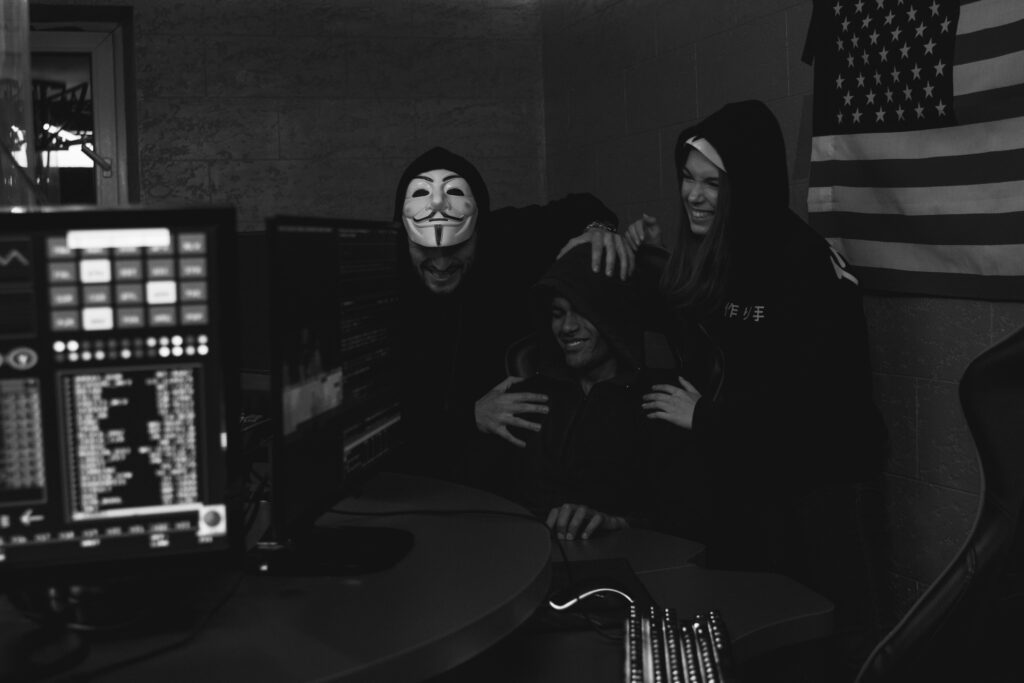In a world increasingly dominated by the digital realm, the concept of anonymity has taken on a new and profound significance. The Anonymous Society, a loosely organized collective of individuals united by a common belief in free speech, transparency, and social justice, has emerged as a prominent force in the virtual landscape. With no central leadership or formal structure, the Anonymous Society operates in the shadows, challenging powerful institutions, exposing corruption, and advocating for change. In this article, we will delve into the enigmatic world of the Anonymous Society, exploring its origins, motives, and impact on the digital age.

Origins of Anonymous
The origins of the Anonymous Society can be traced back to the early 2000s, when the internet was still in its relative infancy. Born from the imageboard culture of websites like 4chan, where users could post anonymously, the group initially lacked a clear purpose or direction. It was through a series of online protests and actions that Anonymous began to coalesce into a recognizable force.
One of the early milestones for the group was Operation Chanology, a campaign against the Church of Scientology in 2008. Anonymous activists protested against what they saw as the church’s unethical practices and attempts to censor online criticism. This operation marked the emergence of Anonymous as a formidable online presence, capable of coordinating actions that garnered international attention.
Masks and Symbols
One of the most iconic symbols associated with Anonymous is the Guy Fawkes mask, made famous by the graphic novel and film adaptation “V for Vendetta.” This mask has become synonymous with the group’s actions and protests, symbolizing the idea that anyone can be a part of Anonymous, as they hide their true identity behind the mask. The mask serves as a symbol of resistance against oppressive forces and the pursuit of social justice.
Another symbol associated with Anonymous is the use of the tagline “We are Anonymous. We are Legion. We do not forgive. We do not forget. Expect us.” This declaration has been used in various operations and is intended to convey the collective and persistent nature of Anonymous.
Motives and Actions
Anonymous operates under a banner of activism, often targeting organizations, governments, and individuals they perceive as oppressive or corrupt. Their motives are rooted in principles such as free speech, government transparency, and social justice. They view themselves as digital vigilantes, seeking to hold those in power accountable for their actions.
One of the notable actions carried out by Anonymous was the exposure of corruption within governments and corporations. In 2010, they leaked a trove of classified documents through the whistleblowing platform WikiLeaks. This leak, known as “Cablegate,” exposed diplomatic cables that revealed the inner workings of governments and their interactions with one another. While controversial, this action shed light on hidden truths and sparked conversations about government transparency.
Anonymous has also been involved in numerous operations against oppressive regimes during the Arab Spring and other social movements. They used their digital prowess to provide support to protesters by taking down government websites and disseminating information about human rights abuses.
Challenges and Controversies
While Anonymous has gained recognition for its actions, it also faces challenges and controversies. One of the key issues is the lack of centralized leadership, which can lead to a lack of accountability. Without a clear structure, actions carried out under the name of Anonymous can vary widely in their motives and consequences.
Additionally, the decentralized nature of Anonymous means that anyone can claim to be a part of the collective, leading to instances where individuals or groups with malicious intentions have used the name to carry out harmful activities. This has led to ethical debates within the online community about the legitimacy and effectiveness of Anonymous as a force for good.
The Future of Anonymous
As we move further into the digital age, the role and impact of Anonymous remain uncertain. The group continues to evolve, adapting to new challenges and opportunities in the online landscape. While some see Anonymous as a force for positive change, others view it with suspicion, citing concerns about accountability and ethics.
In recent years, Anonymous has taken on issues such as police brutality, government surveillance, and environmental activism. Their actions are a reflection of the evolving concerns and priorities of the digital generation. As technology continues to shape our world, the influence of groups like the Anonymous Society is likely to persist.
Conclusion
The Anonymous Society represents a complex and enigmatic force in the digital age. With its roots in online culture, it has evolved into a global collective of activists, hackers, and advocates for free speech and social justice. While its actions have garnered both praise and criticism, there is no denying its impact on the world stage. As we navigate the ever-changing landscape of the internet, the Anonymous Society reminds us of the power of collective action and the enduring importance of anonymity in the pursuit of truth and justice. Whether you view them as heroes, villains, or something in between, there is no denying that the invisible forces of the Anonymous Society continue to shape our digital world.
we are legions